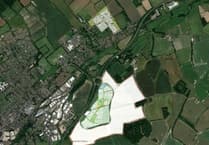The number of new social housing lettings in East Hampshire fell by almost 20% in the last decade, new figures show.
Across England, access to affordable rental properties has steadily declined, with the number of households provided with new social lettings each year falling from 396,000 in 2011-12 to 267,000 last year.
The latest Department for Levelling Up, Housing and Communities figures show there were 399 new social housing lettings offered to tenants in East Hampshire in 2021-22 – down from 419 the year before.
The recent fall in new lets follows a decline over the last decade – in 2011-12, 481 new lets were offered, below the current figure.
This covers all social housing, which is split into affordable or intermediate rent, and social rent. The former means a tenant pays 80% of market value, while the latter is set by the Government, is paid to registered providers and local authorities, and is significantly lower than the private market.
The figures also show 1.2 million households were on local authority waiting lists at the end of March 2022.
Polly Neate, chief executive of Shelter, said this "just isn't good enough".
Ms Neate said: "Every day our frontline services deal with the consequences of not having enough social housing, from families stuck in unsuitable and often poor-quality temporary accommodation to people being pushed into homelessness because they can no longer keep up with soaring private rents."
"There is only one lasting solution to the housing emergency, and that is to invest in a new generation of good quality and sustainable social homes," she added.
Nationally, the number of new properties let as solely social rents – the more affordable social housing category, and roughly equal to 50% of market value – has declined significantly over the last decade.
There were just 225,000 in 2021-22, down from 391,000 in 2011-12.
In East Hampshire, 271 (68%) of the new social housing lettings were among the most affordable category – down from 467 10 years ago.
Luke Murphy, associate director at think tank the Institute for Public Policy Research said: "The long-term decline in the share of new lettings in council homes also reflects the ongoing shrinkage of the number of local authority-owned social homes.
"All of this points to the failure to build sufficient homes to meet demand, including genuinely affordable homes. The Government must rapidly address this by increasing investment in affordable housing and reforming the land market and planning to increase the overall supply."
The DLUHC said it is investing £11.5 billion into building more social homes to deliver tens of thousands of homes available for rent and sale through its Affordable Homes Programme.
A spokesperson added that the Government is "committed to building more social homes".



